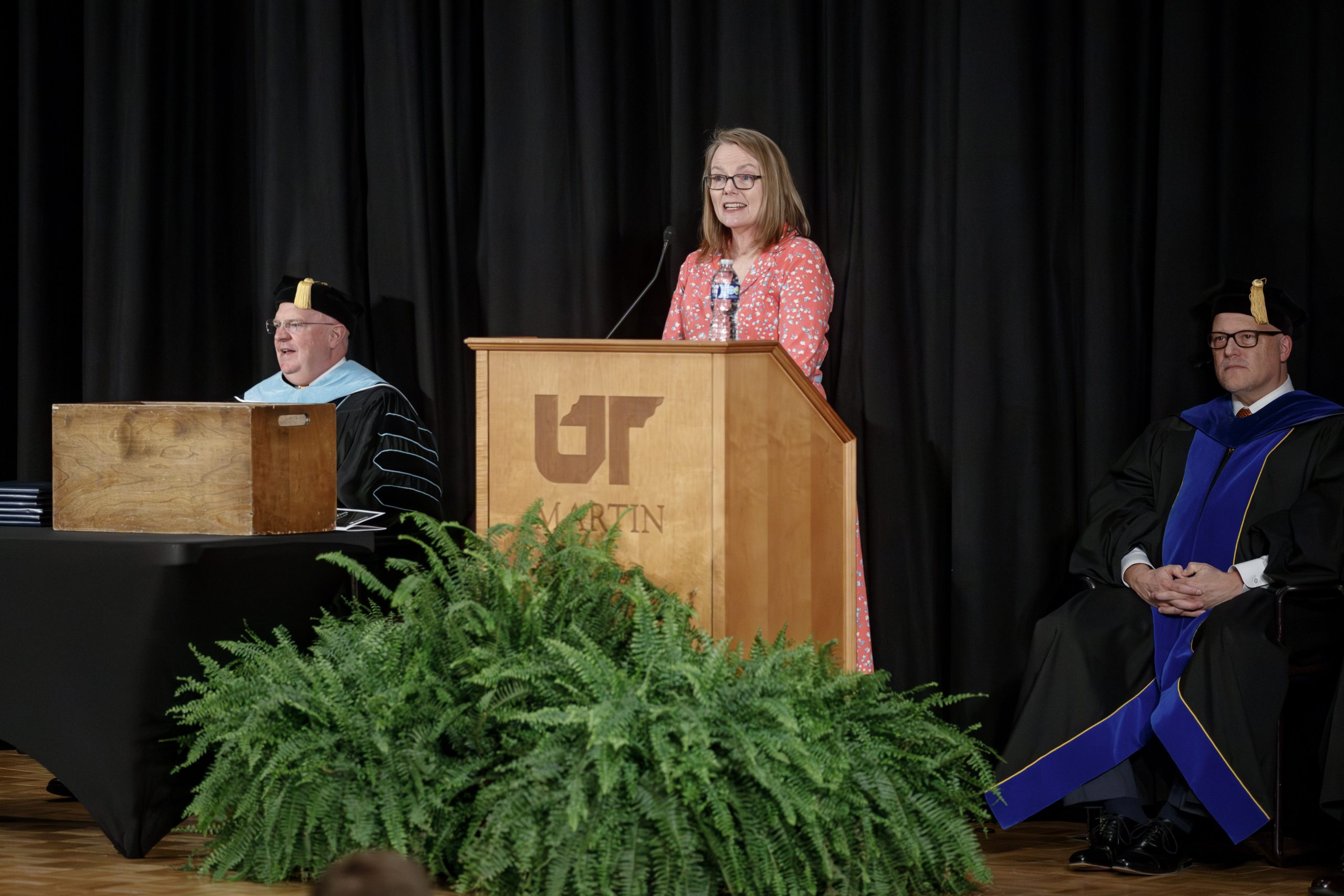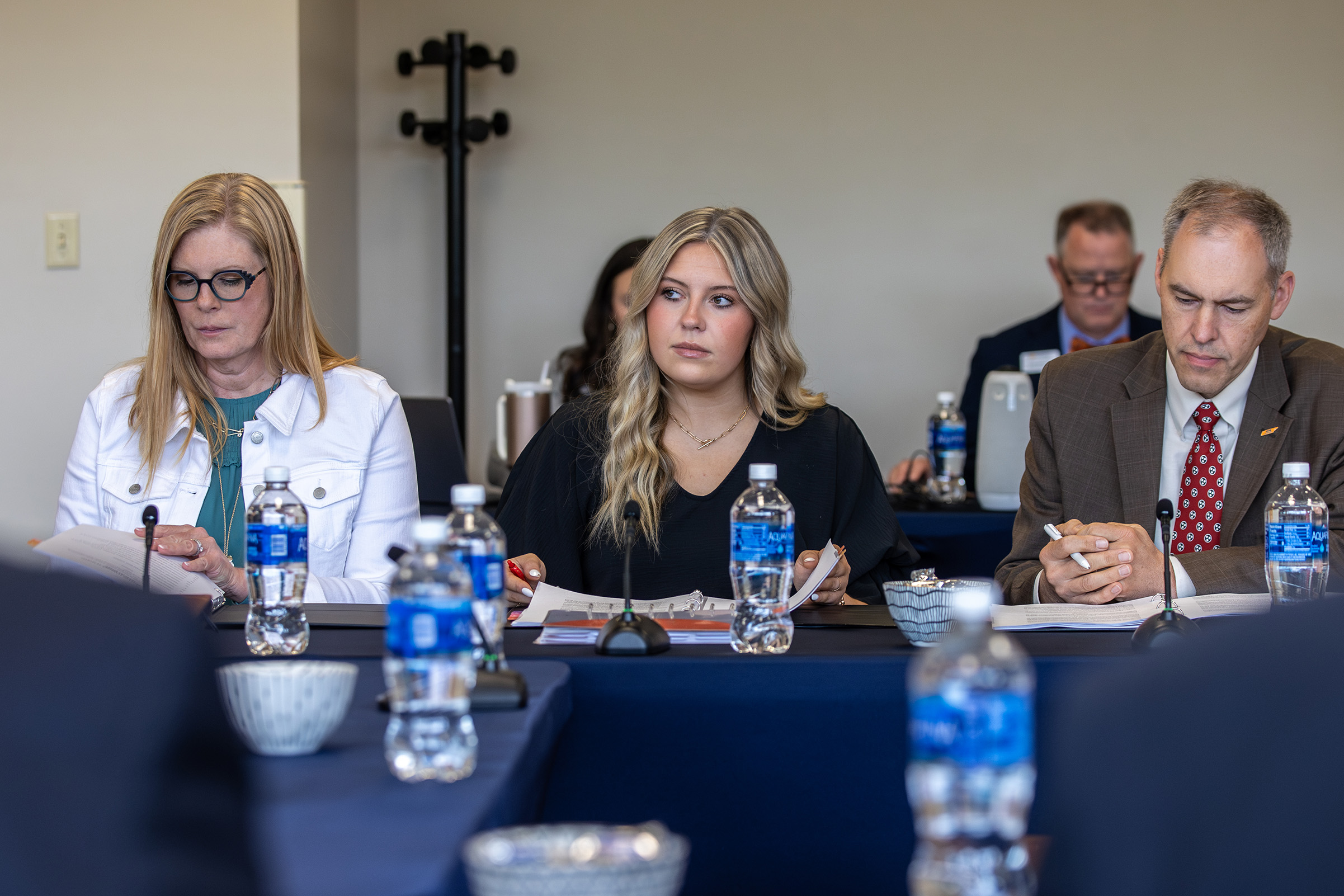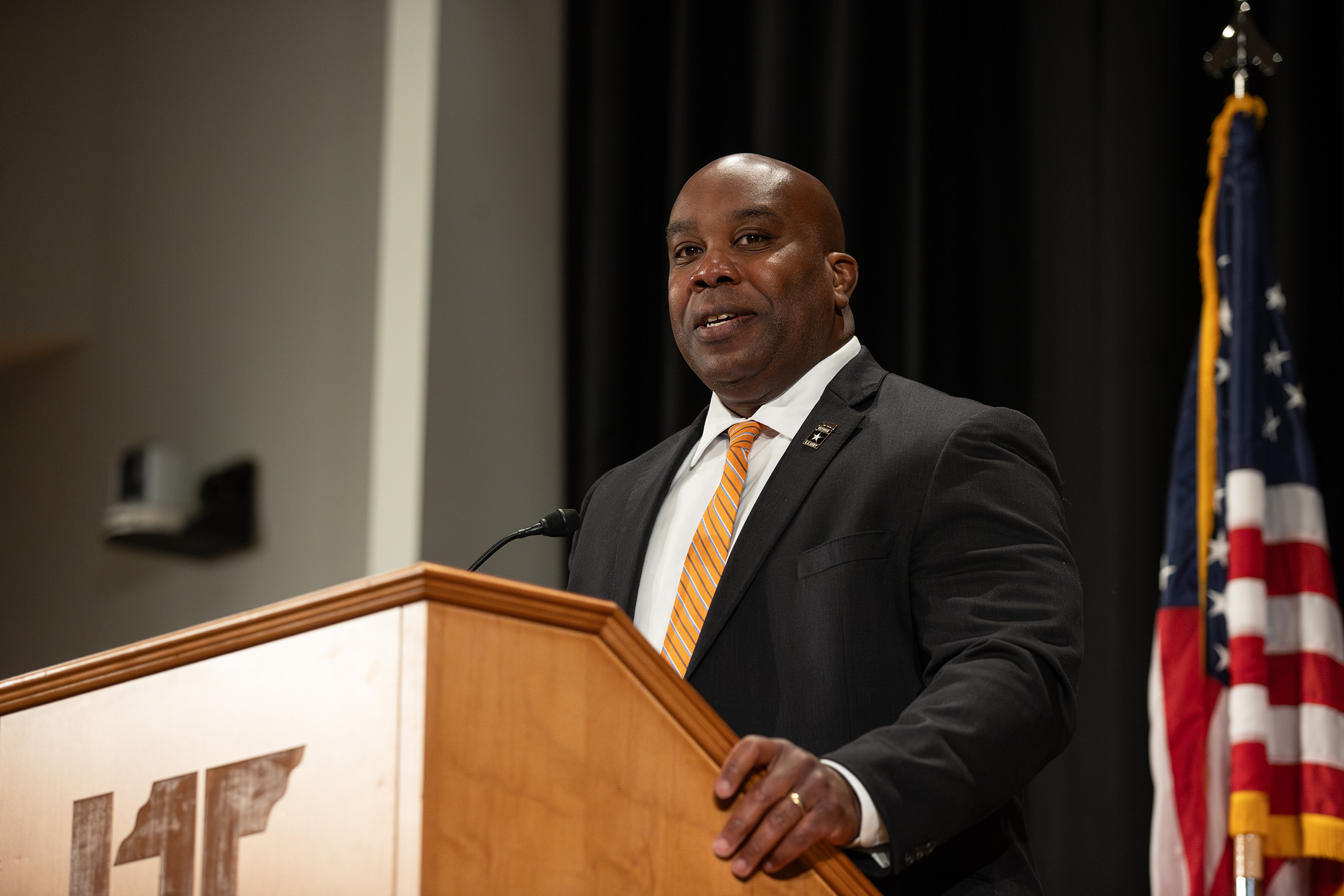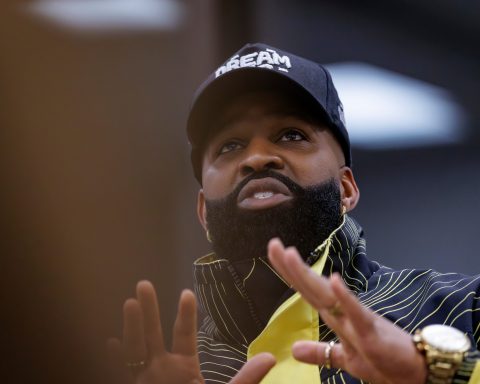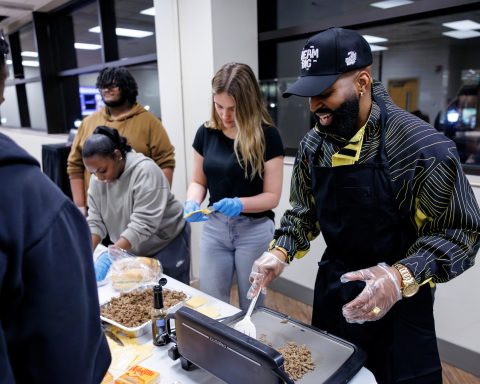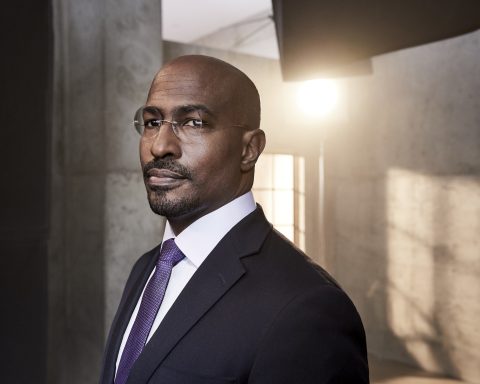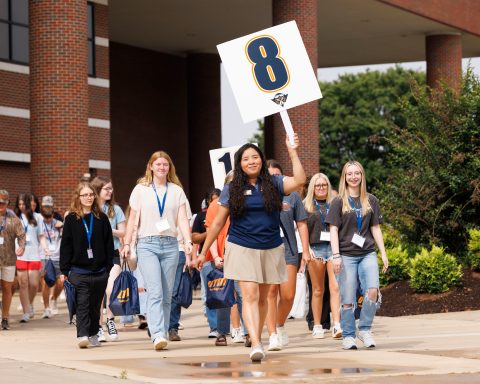St. Jude Children Research Hospital values new ideas – so much that employees are encouraged to participate in the Blue-Sky Ideas initiative. Employee ideas are submitted and vetted for possible funding and implementation. Dr. Katherine Barker, a St. Jude researcher, told honorees at the 60th Honors Day at the University of Tennessee at Martin that the world has room for ideas from those who choose to think outside the box. The April 14 event in the Boling University Center’s Watkins Auditorium recognized students who have excelled at the university.
The Gallatin, Tennessee, native is a 1991 UT Martin University Scholar graduate in biology and chemistry. She holds master’s and doctorate degrees from Vanderbilt University and the University of Mississippi Medical Center respectively. She and her husband, Dr. John Barker, a 1989 UT Martin graduate, live in Memphis.
Barker said the Blue-Sky Ideas Initiative seeks ideas to benefit patients and advance cures that St. Jude is positioned to address. The ideas are reviewed by multiple St. Jude teams for possible follow up, funding and implementation. “Skyhawks are built for blue skies,” she said, explaining how this concept applies to current students and future graduates.
“There’s a saying at St. Jude, ‘If not St. Jude, then who?’, which affirms that St. Jude has a unique capability to tackle some big problems,” she said. “I think each of us here today is uniquely gifted to tackle problems no one else can. I believe that within you and surrounding you are boundless possibilities for big ideas and a world that needs you to bring them to fruition.
“You need to use your unique gifts, curiosity, sense of wonder, tenacity and passion that got you to this moment of being recognized for your academic achievements. So, look around you at what could be and figure out how to make it happen. Challenge yourself with the question, ‘If not me, then who?’”
She said that translating the Blue-Sky Initiative to apply to UT Martin Skyhawks involves four guiding principles, the first of which is “blue-sky ideas aren’t made for flying solo.” She gave the example of a cell-growth project suggested by a St. Jude researcher whose idea needed the help of others to move forward. Since the idea was approved, a team of 10 has grown to 60, plus an advisory team to help evaluate results. St Jude
“So, if you are formulating your next steps, seek out folks who can help you find that path to success,” Barker said. “Mentors who have dealt with similar challenges can help you navigate yours. Colleagues and friends and faculty members who have similar passion can be partners in your work, can commensurate when you have a bad day and can share your successes.”
When seeking persons to help you navigate to success, she said not to exclude those who might pick apart your work. “Even your critics can be helpful in pointing out your blind spots and motivating you to push forward.”
“Blue Sky Ideas need refinement,” she next told the audience, reminding everyone that no blue-sky ideas are approved the first time. She gave the example of a submitted idea that wasn’t approved but was important enough to find a place in the hospital’s annual budget.
“So, life is full of roadblocks,” she said.” Sometimes you take two steps forward and three steps back. Some of the best inventions started out as utter failures.”
Barker gave examples of Sir James Dyson’s 5,271 prototypes of his vacuum cleaner that he created before he was successful and then had to start his own company to produce it. The degreaser and rust protectant WD-40 earned its name honestly by not being successful until the 40th try for use in the aerospace industry before becoming a commercially available product.
“Steven Spielberg was rejected from film school three times and John Grissom’s book ‘A Time to Kill’ was rejected by publishers 28 times.” She added, “Failures are part of the process. Good ideas become great ideas with time, creativity and tenacity.”
She reminded the audience that changing course is often the path to success.
“Blue Sky ideas may involve adjusting your flight path,” she said. “Rarely does one have a fully formed plan for the future.” Barker recalled that she began college as a pre-med major but changed her mind once she took organic chemistry, but although the subject matter wasn’t a good fit for her, she enjoyed the organic chemistry labs.
She recalled that retired faculty member Dr. Phil Davis, chemistry department chair at the time, encouraged her to consider graduate school. She had never considered pursuing a Ph.D. but became motivated when she began exploring graduate schools and programs. The outcome worked out for her as it did for her husband who had to drop his original dissertation project because of infighting among committee members. He persevered and eventually earned his doctorate.
“Life is full of twists and turns. Never stop believing in yourself,” she said. “If you feel yourself stuck on a path to nowhere, reach inside yourself and figure out the best direction to take your next step, just one step at a time. If life hands you lemons, you’ve got it in you to serve up the most delicious lemonade.”
Barker closed by saying, “Blue sky ideas are made for long-haul flights.”
“News flash – you won’t have your life figured out by the time you turn 25. I’m about to turn 55, and I don’t have it figured out myself,” she said. “Personal growth is a lifelong process, and the world is too big, too complex and too diverse to settle for a narrow notion of how you should get from point A to point B.
“Stretch yourself, learn to speak a different language, or learn to code in a computer language. Travel to new places – to the next county, the neighboring state or across the world, and really get to know people who are different than you. … You will not only enrich your life, but you might find yourself in the right place at the right time to make the world better in some way.”
Barker congratulated the honorees for their successes and reminded them that each person present has the ability and determination to pursue the ideas and dreams that will make life better for others.
“You have proven that you’ve got what it takes to follow your passions, make that goal, do the hard work and succeed,” she said. “I challenge you to build on these successes and the world will be better for it because remember: Skyhawks are built for blue skies.”
St. Jude opened in 1962 with the mission to find cures for children with cancer and other life-threatening diseases. The hospital provides treatment regardless of race, ethnicity, beliefs or a family’s ability to pay. The research hospital and ALSAC, which raises funds and awareness for St. Jude, were founded by the late entertainer Danny Thomas. UT Martin has an active Students for St. Jude organization.
PHOTO: Dr. Katherine Barker, a St. Jude researcher and UT Martin graduate, was the keynote speaker for the 60th Honors Day event April 14 in Watkins Auditorium. The event honors students who have excelled at the university. Pictured with her onstage are Dr. Andy Lewter (left), vice chancellor for student affairs, and Dr. Philip Acree Cavalier, provost and senior vice chancellor for academic affairs.

